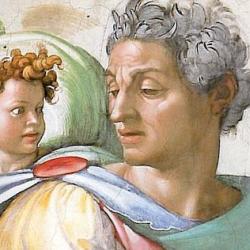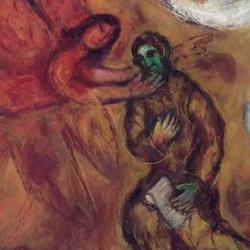For the Greek philosophers, working with matter was menial, a task for slaves and other non-citizen workers. Commerce was dirty and repulsive. The only true work of a gentleman, the only true work of a prince or nobleman, was intellectual, philosophizing, which is to say, doing nothing. That is not the biblical view. There is nothing menial about working with your hands on physical things; nothing dirty about commerce. These are royal tasks, part of the task of ruling and subduing the earth that Yahweh originally assigned to Adam.
The first Spirit-filled man in the Bible is Joseph, who is equipped by the Spirit to organize famine relief, to be a royal administrator. It is a great work, a task of creativity and courage, a task fit for a king. The second set of Spirit-filled men in the Bible are Bezalel and Oholiab, who are filled with the Spirit so they have skilled and wisdom to make the furnishings of the tabernacle.
As Moses is dying, he tells Joshua to be strong and courageous, because Joshua is going to lead Israel into a hostile land in a series of bloody battles. As David is dying, he tells Solomon the very same thing – be strong and courageous – even though Solomon has no enemies threatening him. Solomon has to be strong and courageous like a warrior in order to rule Israel, to supervise the construction of the temple, to build ships of Tarshish that go out to the world and bring back cargo of apes and peacocks and ivory.
Strength and courage are needed for battle, and Joshua is an Israelite military hero. Strength and courage are equally needed for administration, trade, and craftsmanship, and Solomon is an Israelite hero of peace.









